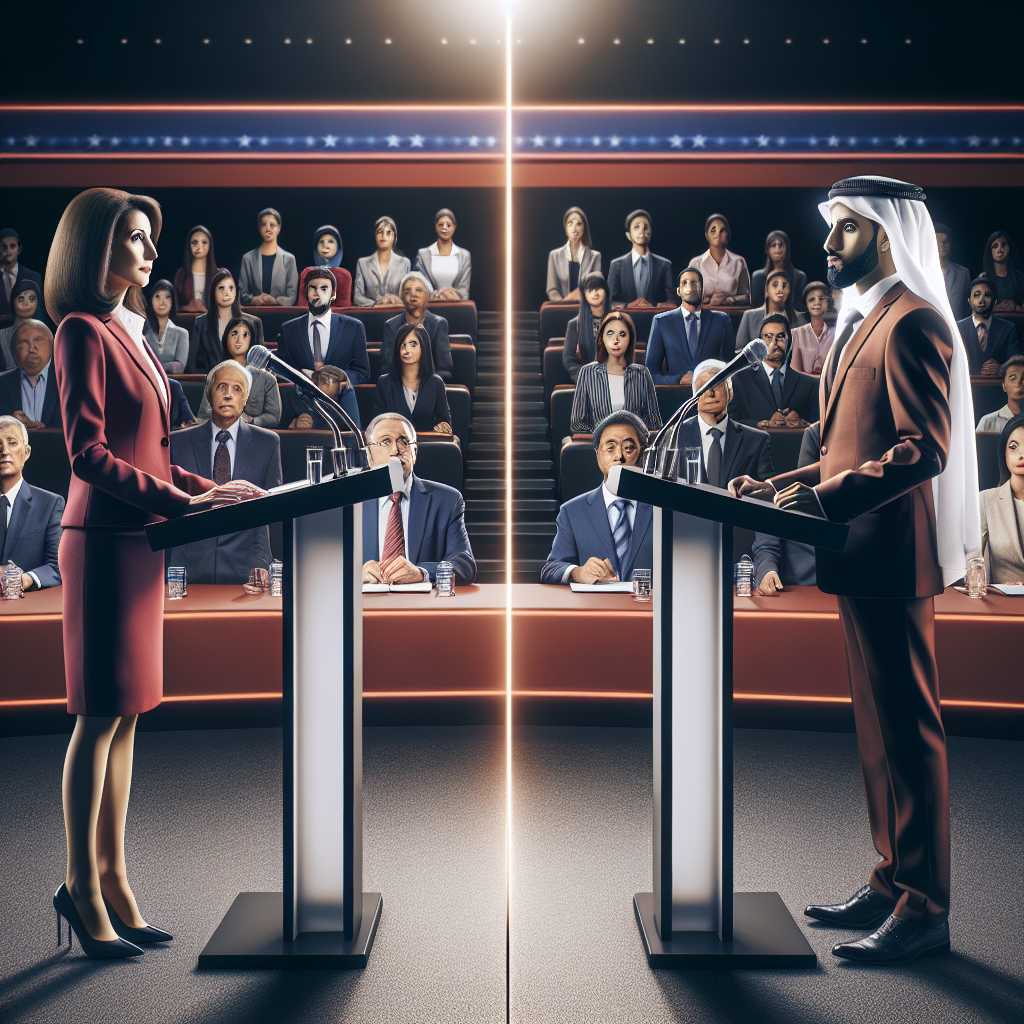The Significance of Presidential Debates in Modern Politics
Presidential debates have become landmark events in the political calendars of democratic nations, particularly in the United States. They serve as pivotal platforms for candidates to present their policies, debate their differences, and appeal to the voting public. The prominence of these debates is underscored by the significant media coverage they receive and their potential to shape the outcomes of elections. While often carrying weight in shaping public opinion, these debates also draw scrutiny for their content, style, and the rules governing them.
The Evolution of Presidential Debates
The format and execution of presidential debates have evolved over time. The first televised presidential debate in United States history took place in 1960 between then-Vice President Richard Nixon and Senator John F. Kennedy. This event introduced a new dynamic to campaigning by allowing voters to observe candidates’ demeanor and real-time responses to questions, not just listen to their policy positions and rhetoric. Since then, debates have become a standard element of presidential campaigns, with advances in technology and broadcasting amplifying their reach and impact.
Formats and Rules Governing Debates
Debates take many forms, from town hall formats with questions posed by citizens to discussions moderated by journalists where candidates engage directly with each other’s policies. The rules are typically agreed upon by the candidates’ campaign teams but they can be contentious as each team vies for conditions most favorable to their candidate. Issues like speaking time, the selection of moderators, question topics, and rebuttal opportunities are subjects of negotiation and can influence the debates’ tenor.
Criticism and Impact on Election Outcomes
Critics argue that presidential debates sometimes focus more on performance than policy, which can lead to misleading characterizations of a candidate’s abilities or positions. They also note that the high-pressure environment does not always yield substantive discourse. Moreover, solitary gaffes or triumphs in a debate can unduly sway voter opinions despite a candidate’s broader campaign or track record.
However, there is no denying the debates’ impact. They provide platforms for potentially undecided voters to see how candidates handle pressure, think on their feet, articulate policies, and offer rebuttals to criticisms.
Debate Preparation and Strategies
Campaign teams spend considerable time preparing their candidates for debates, anticipating questions, rehearsing responses, and setting strategies tailored to their opponents’ perceived weaknesses. Candidates often practice with stand-ins for their opponents in order to simulate the debate environment as closely as possible.
Candidates must balance offense with defense; effectively promoting their own ideas while countering criticism is crucial for debate success. Style also matters as voters assess qualities like leadership skills, empathy, competence, and commitment to core values during these exchanges.
Significant Debates in Historical Context
Some presidential debates have become iconic in their significance for either illuminating or obscuring facts about a candidate’s ability to lead. They have played crucial roles in close contests; at times altering a campaign’s trajectory through breakthroughs or blunders that become pivotal moments in an election’s narrative.
Modern Technology and Audience Engagement
In recent years, the presence of social media has changed how audiences engage with presidential debates. Platforms such as Twitter and Facebook provide real-time commentary from both pundits and viewers alike, creating a parallel public square where millions share opinions instantly.
Audience reactions gauged through live polls or “win” and “loss” tallies add another layer of drama and can influence perceptions before professional analysis is published.
Looking Ahead: The Future Role of Presidential Debates
As media evolve and countries continue grappling with new political realities, so too will the nature of presidential debates evolve. Discussions around adapting formats to ensure they best serve the democratic process are ongoing. Regardless of format or evolution, the essence of these debates centers on informed discourse that enlightens voters about their choices for national leadership.
Notes
Image description: A split-screen image showing two presidential candidates standing behind podiums on a brightly lit debate stage, with an audience visible in the background watching attentively as a moderator poses questions from the forefront of the stage.
